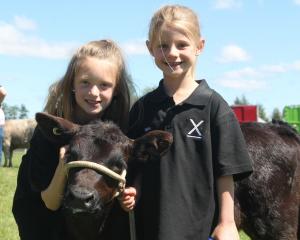
Southland sales doubled to 56 dairy farms changing hands in the year to June while Canterbury was up more than 50% to 66 sales from a year ago.
Sales activity was more modest in Otago where 17 dairy farms are under new ownership, up just over 10%.
Nationally, a major rebound in sales activity across several farm types was outlined in the Real Estate Institute of New Zealand’s latest rural property report.
Rising sales were supported by improved commodity prices, reduced interest rates, and renewed interest from banks and private investors.
Dairy farm transactions also increased in the traditional regions of Waikato by about 16% to 136 sales, Taranaki nearly 38% to 73 sales and Manawatū-Whanganui about 10% to 43 sales.
Nearly 75% of all dairy sales in the country were from these regions, but prices were mixed.
Manawatū-Whanganui increased 20% in the median sale price to $45,100 a hectare, Waikato 6.4% to $47,470/ha and Canterbury 4.6% to $50,000/ha, but Southland dropped 14.7% ($31,835/ha) and Otago fell 12.4% ($32,110/ha).
Institute rural spokesman Shane O’Brien said increased dairy sales in the South were being driven by the strong Fonterra payout.
"Canterbury has got some good scale, some good soils, reliable irrigation schemes and water. It’s not without its challenges in terms of environmental compliance with ECan, but the banks are keen to support a lot of their clients to grow their businesses and that’s driving the market."
Most of the buyers were local farmers and there was little outside capital coming in, he said.
He said localised activity applied to Southland-Otago too as a result of confidence in the dairy business.
"Dairy enterprises are showing some good cash surpluses so the banks are keen to support them. And they love reinvesting in land.
"It’s a general confidence in the sector and we are seeing sharemilkers moving in and buying land and some equity partnerships being put together to buy farms."
Some sales would be a result of retiring farmers exiting and others selling on a strong market with buyers prepared to pay good money for the right farms.
Median prices varied even within provinces, depending on irrigation schemes, and premiums were being paid for fully compliant farms, he said.
"Otago probably hasn’t had the benefit of the strong dairy sector and it’s more Canterbury and Southland, but there have been some strong sales there.
"Central Otago, in particular, has a bit of X-factor for a lot of buyers. That’s one market where we do get external capital coming in."
Grazing farms had a marked recovery, particularly in Hawke’s Bay and Otago-Southland, driven by strong red meat prices and rising demand for support blocks.
Nationally, 358 grazing farms were sold, compared with 290 sales the year before.
Southland sales of grazing land were up nearly 30% and Otago 7%, but median prices fell about 13% to $12,670/ha and just over 10 to $12,060/ha respectively.
Finishing farms attracted growing interest in regions such as Taranaki and Bay of Plenty, aided by firm commodity prices and favourable seasonal conditions.
However, cost pressures and restrictions around forestry conversions have tempered some of this momentum.
The top five regions for finishing farm sales were Manawatu-Whanganui (113 sales), Canterbury (104 sales), Southland (95 sales), Waikato (74 sales) and Otago (66 sales).
Median prices favoured the southern regions, up 17.4% to $33,245/ha in Canterbury, 16.4% to $24,500/ha in Otago and 14% to $26,460/ha in Southland.
In a mixed horticultural market, investors were looking at non-traditional areas such as Canterbury and Southland to diversify risk and growing seasons, with rural sales agents reporting more buyer inquiries.
Of the nearly 80 sales of arable farms nationally, 46 of them were in Canterbury.
Canterbury prices declined slightly to $44,000/ha, while Waikato was up 26.7% to $60,370/ha.
For the most part, forestry sales were subdued because of weak log prices and regulations for farm to forestry conversions.
Rule changes were restricting planting and likely to further dampen interest although younger forests registered on the Emissions Trading Scheme continued to attract some attention, Mr O’Brien said.
"Changes in land use continue to impact the rural markets. Much has been publicised about forestry conversions from pasture to trees and government initiatives to stem this."

















